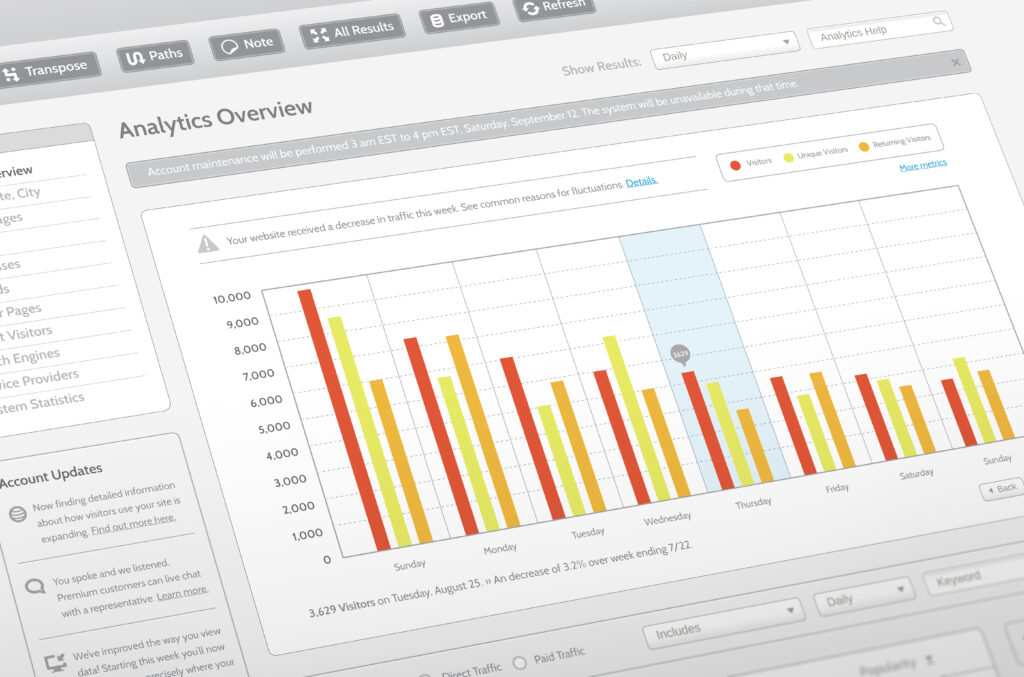
In the ever-evolving world of digital marketing, SEO (Search Engine Optimisation) remains a cornerstone for businesses looking to establish a strong online presence. While SEO encompasses various aspects, one that often proves to be particularly challenging is Technical SEO. This specialised branch focuses on optimising the technical aspects of your website to enhance its search engine visibility.
For large-scale websites, such as e-commerce platforms, news portals, or multinational corporations, the challenges in technical SEO are amplified due to the sheer size and complexity of these digital ecosystems. In this blog series, we will delve into the unique challenges faced by large-scale websites in their pursuit of SEO excellence and explore practical solutions to overcome them.
Challenges in Technical SEO for Large-Scale Websites
1. Site Architecture and Navigation
One of the first hurdles large-scale websites face is managing site architecture and navigation. With thousands or even millions of pages, it’s easy for the structure to become convoluted. To overcome this challenge:
Proper URL Structure Planning: Develop a logical and intuitive hierarchy for URLs. This makes it easier for search engines and users to navigate your site.
Implementing Breadcrumb Navigation: Breadcrumbs enhance user experience and provide search engines with clear navigation paths.
Strategic Use of XML Sitemaps: Create and maintain XML sitemaps to help search engines discover and index your content efficiently.
2. Indexation Issues
Duplicate content and indexation issues are common on large websites due to dynamic content generation and URL variations. To address these concerns:
Canonical Tags and Redirects: Implement canonical tags to signal the preferred version of a page and set up proper redirects for duplicate content.
URL Parameter Handling: Use Google Search Console’s URL Parameters tool to instruct search engines on how to handle URLs with parameters.
Dynamic Rendering for JavaScript-Heavy Sites: Consider dynamic rendering to serve pre-rendered HTML to search engines, improving crawlability.
3. Mobile Optimisation
Mobile optimisation is crucial, especially with Google’s mobile-first indexing. Neglecting mobile can lead to lower rankings and diminished user experience. To tackle mobile SEO:
Mobile-Responsive Design: Ensure your website design adapts seamlessly to various screen sizes.
Mobile-Friendly Page Speed Optimisation: Optimise images, leverage browser caching, and reduce server response times for mobile users.
4. Site Speed and Performance
Site speed and performance directly impact user experience and SEO rankings. Slow websites can deter users and search engines alike. To enhance performance:
Website Performance Audits: Regularly audit your website’s performance using tools like Google PageSpeed Insights.
Image Optimisation and Lazy Loading: Large websites often have numerous images. Optimising these images and implementing lazy loading can significantly boost page speed.
Caching and Content Delivery Networks (CDNs): Implementing caching mechanisms and utilising CDNs can help distribute content efficiently and reduce server load, improving overall performance.
Minification and Compression Techniques: Minify CSS and JavaScript files and enable server-side compression for faster loading.
Server and Hosting Optimisations: Invest in high-quality hosting services and optimise server configurations for optimal speed.
5. Technical Errors
Technical errors like crawl issues and insecure connections can be detrimental to SEO efforts. To maintain a clean technical SEO profile:
Regular Website Audits and Monitoring: Conduct routine website audits and use tools to monitor your site’s health.
Fixing Crawl Errors Promptly: Address crawl errors and HTTP status codes quickly to ensure a smooth user experience.
Ensuring Secure Connections and HTTPS: Secure your website with HTTPS, as Google gives preference to secure sites in search results.
Tools and Resources for Technical SEO
To streamline your technical SEO efforts, leverage these tools and resources:
SEO Auditing Tools: Tools like Screaming Frog and Sitebulb help identify technical issues on your site.
Google Search Console and Bing Webmaster Tools: Use these platforms to monitor your site’s performance and address indexing issues.
SEO Plugins and Extensions: For platforms like WordPress, plugins like Yoast SEO or Rank Math can simplify on-page SEO.
Performance Monitoring Tools: Google’s PageSpeed Insights and GTmetrix can help gauge your website’s performance.
Knowledge Sources: Stay updated with SEO best practices through resources like Google’s SEO guidelines and reputable SEO blogs.
Future Trends in Technical SEO for Large-Scale Websites
As technology advances, so do SEO practices. Keep an eye on these future trends:
Voice Search Optimisation: With the rise of voice assistants, optimising for voice search is becoming crucial.
Core Web Vitals and User Experience Signals: Google’s emphasis on user experience signals means that Core Web Vitals will play an even more significant role in rankings.
Mobile-First Indexing Advancements: Expect further refinements in mobile-first indexing as mobile usage continues to grow.
Machine Learning and AI in SEO: Machine learning and AI algorithms will shape the future of SEO, influencing content recommendations and search result rankings.
In the ever-evolving landscape of technical SEO for large-scale websites, staying ahead is crucial. LocaliQ, with its expertise in digital marketing and technical SEO solutions, can be your strategic partner. With our tailored strategies, cutting-edge tools, and experienced team, we can help your large website conquer technical SEO challenges and thrive in the digital world. Contact us today and unlock the full potential of your online presence.





